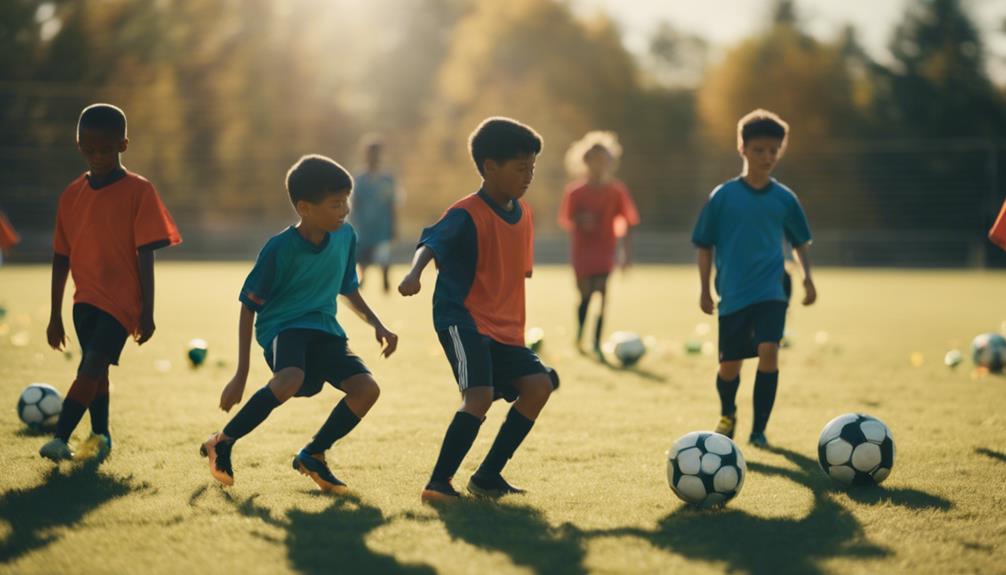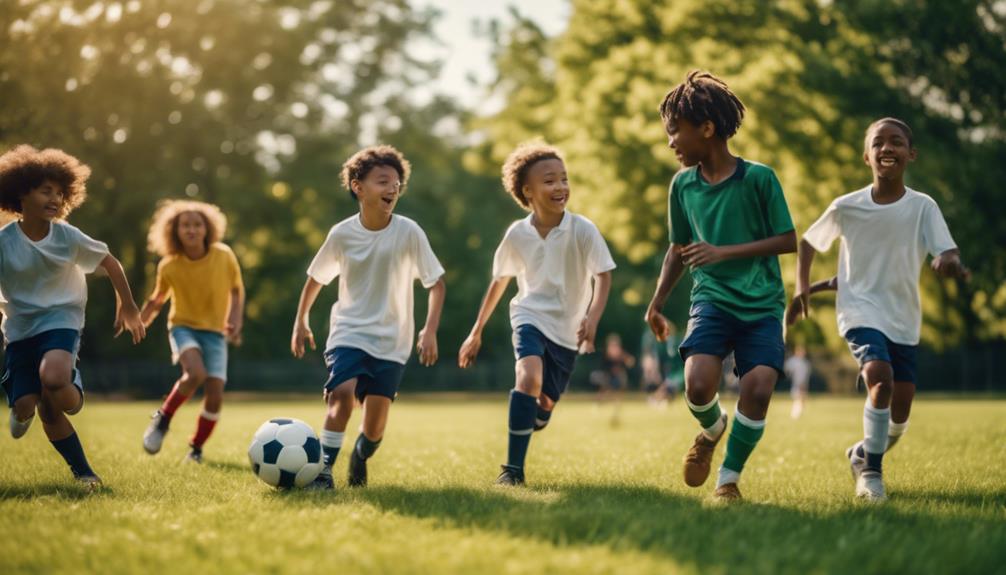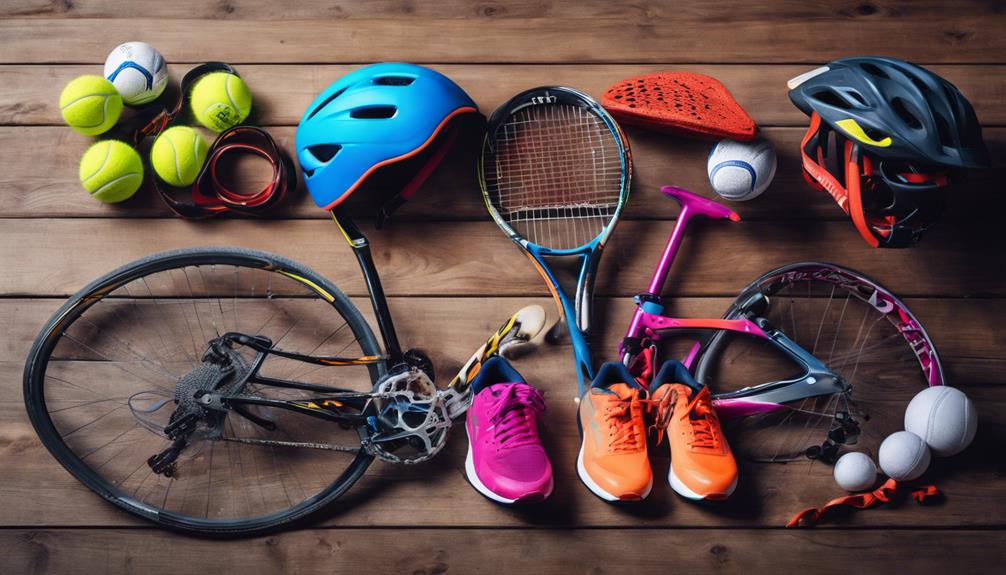
In the fast-paced world of teenage life, balancing academics and sports can feel like walking a tightrope. With the pressure to excel in both areas, many students find themselves wondering if their commitment to athletics is compromising their academic performance. This article explores the intricate relationship between sports and studies in teenagers, dissecting whether one truly harms the other or if they can coexist harmoniously.
Understanding the Balancing Act: Sports vs. Studies
For many teenagers, participating in sports is more than just a pastime; it’s a passion that can shape their identity. However, as they devote hours to practices, games, and training, the question arises: is there enough time in the day for both sports and academic responsibilities? The balancing act can be daunting, as students must navigate their schedules meticulously to avoid falling behind in school.How To Quit A Sport Without Feeling Guilty
On the other hand, sports can offer essential life skills that contribute positively to a teen’s academic journey. Discipline, teamwork, and time-management skills honed on the field can translate to better study habits and increased focus in the classroom. So, while the challenge is real, it’s not necessarily a dead-end for academic success.
The Double Life of a Teen Athlete: Juggling Priorities
Teen athletes often lead a double life, balancing the demands of rigorous training and competition with the responsibilities of homework and exams. This juggling act requires strong time management and organizational skills, as one missed assignment or half-hearted study session can lead to a significant dip in grades. Many students report feeling overwhelmed by the constant pressure to perform well in both arenas.
Yet, this dual commitment can also foster a sense of accomplishment and resilience. Learning to prioritize and manage time effectively often results in enhanced multitasking abilities. Teen athletes frequently discover that with careful planning, they can excel both on the field and in the classroom—creating a rewarding experience that boosts their confidence and skills in both areas.
Academic Performance: Does Sports Take a Backseat?
When it comes to academic performance, the debate rages on about whether sports activities lead to lower grades or if they actually provide a motivational boost. Some studies suggest that increased time spent in sports can detract from study time, leading to reduced academic performance. The pressure to maintain eligibility for sports can ironically lead some students to prioritize their athletic commitments over their academic responsibilities.
Conversely, many students thrive under the pressure of balancing both. The structured environment of team sports can instill a sense of responsibility that often carries over into their studies. Moreover, the camaraderie and support found in sports teams can help students stay motivated and engaged in their education, fostering a holistic approach to personal development.
The Physical Benefits of Sports on Teenagers Explained
Engaging in sports offers numerous physical benefits that are crucial for healthy adolescent development. Regular physical activity strengthens muscles and bones, enhances cardiovascular health, and can lead to improved overall fitness. These physical advantages not only contribute to a healthier lifestyle but also help combat issues such as obesity and mental health challenges that many teens face today.
Moreover, the endorphin boost from sports can lead to increased energy levels and better mental clarity. This heightened physical and mental state can be advantageous when tackling academic challenges, potentially leading to better concentration and productivity during study sessions. Therefore, the physical benefits of sports can complement academic endeavors rather than hinder them.
Stress and Time Management: The Athlete’s Dilemma
For teen athletes, the pressure of competing and performing can often lead to stress. Balancing games, training schedules, and academic deadlines can quickly become overwhelming, causing anxiety and burnout. Many students find themselves caught in a whirlwind of commitments, struggling to keep up with both their athletic and academic obligations.
Effective time management becomes essential in alleviating this stress. By learning to prioritize tasks and establish a routine, teen athletes can create a balance that allows them to thrive in both sports and school. Developing a personal schedule that allocates time for practice, homework, and relaxation can help mitigate the pressures of juggling these two demanding aspects of life.
Research Findings: Academic Impact of Sports Participation
Several research studies have sought to investigate the academic impact of sports participation among teenagers. Some findings indicate that students involved in athletics tend to perform better academically than their non-athletic peers. This is often attributed to the structured environment of sports, which encourages discipline and a strong work ethic.
However, it’s important to note that the benefits can vary significantly based on individual circumstances. Factors such as the intensity of sports involvement, personal motivation, and support systems play crucial roles in determining whether sports help or hinder academic performance. Thus, while there are positive correlations found, the outcomes are not uniform across all teen athletes.
Social Skills vs. Study Time: What Do Teens Choose?
Engaging in sports provides teenagers with invaluable opportunities to develop social skills and build friendships. The camaraderie of being part of a team fosters communication, leadership, and cooperation—qualities that are significant for personal growth. For many teens, these social interactions are just as important as their academic achievements, providing a sense of belonging during a time when peer relationships are paramount.
However, this raises a dilemma: do teens prioritize socializing and sports over studying? In some cases, yes. The thrill of competition and the joy of teamwork can easily eclipse the solitary nature of studying, resulting in students choosing to spend more time on the field than in their textbooks. Encouraging a balance between social activities and academic responsibilities becomes essential in helping teenagers make informed choices.
Parental Perspectives: Supporting Sports or Studies?
Parents often find themselves navigating the fine line between encouraging their child’s passion for sports and ensuring they maintain solid academic performance. Many parents advocate for sports as they recognize the life lessons, discipline, and social connections that come with athletic participation. Yet, they also worry about the potential for declining grades and increased stress.
Open communication between parents and their teenagers is vital in addressing these concerns. By discussing the importance of both sports and academics and fostering a supportive environment, parents can help their children develop a balanced approach that honors their passions while maintaining their educational responsibilities.
Tips for Managing Time Between Sports and Schoolwork
Managing time effectively between sports and academic commitments is a skill that can benefit teenagers throughout their lives. Here are a few tips for striking that balance: First, encourage the use of planners or digital calendars to schedule practice times, study sessions, and deadlines. This can help visualize where time is being spent and identify areas that may need adjustment.
Secondly, emphasize the importance of setting priorities. Encourage teens to tackle homework and projects during downtime, such as before practice or during lunch breaks. This proactive approach not only lightens the academic load but also frees up time for relaxation and social activities later. Ultimately, establishing a routine that accommodates both sports and studies can lead to increased satisfaction and decreased stress.
The question of whether sports hurt academic performance in teenagers is complex and multifaceted. While there are certainly challenges involved in balancing these two significant aspects of life, many teens find that with dedication and effective time management, they can thrive in both arenas. By fostering a supportive environment and emphasizing the value of both sports and education, parents and educators can help teenagers navigate this balancing act successfully, proving that it is indeed possible to achieve athletic excellence while excelling academically.





